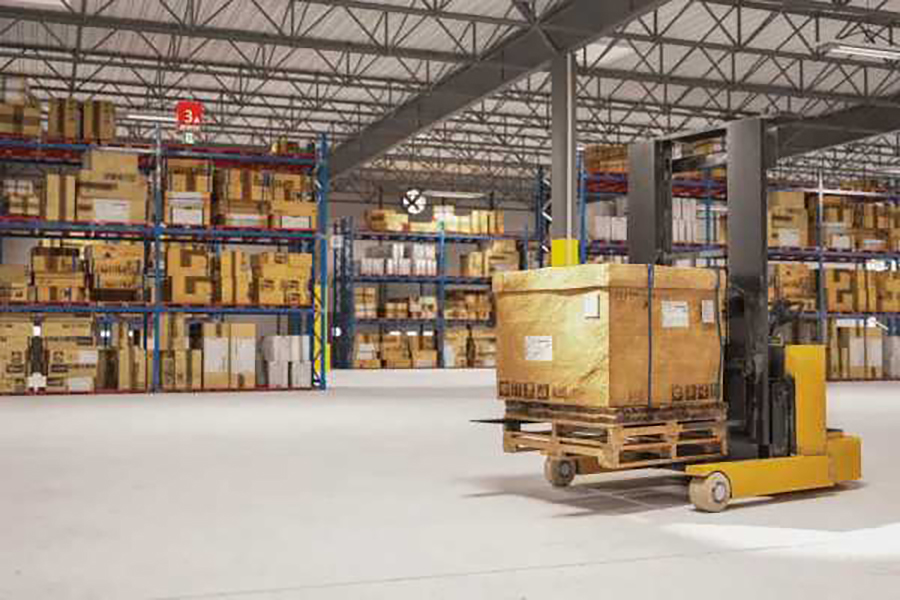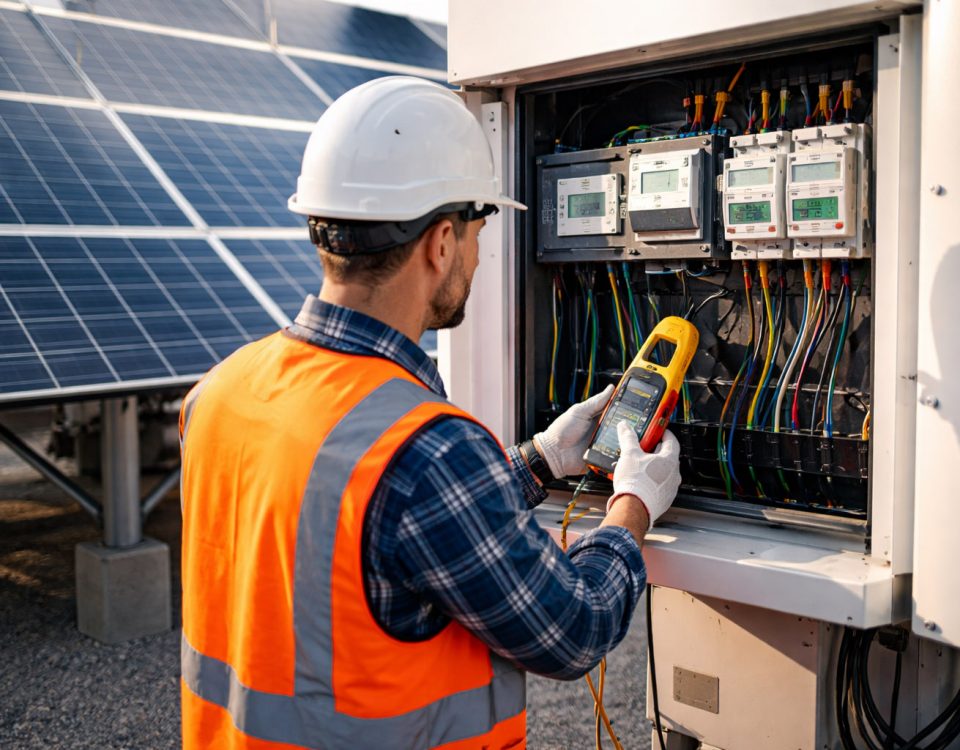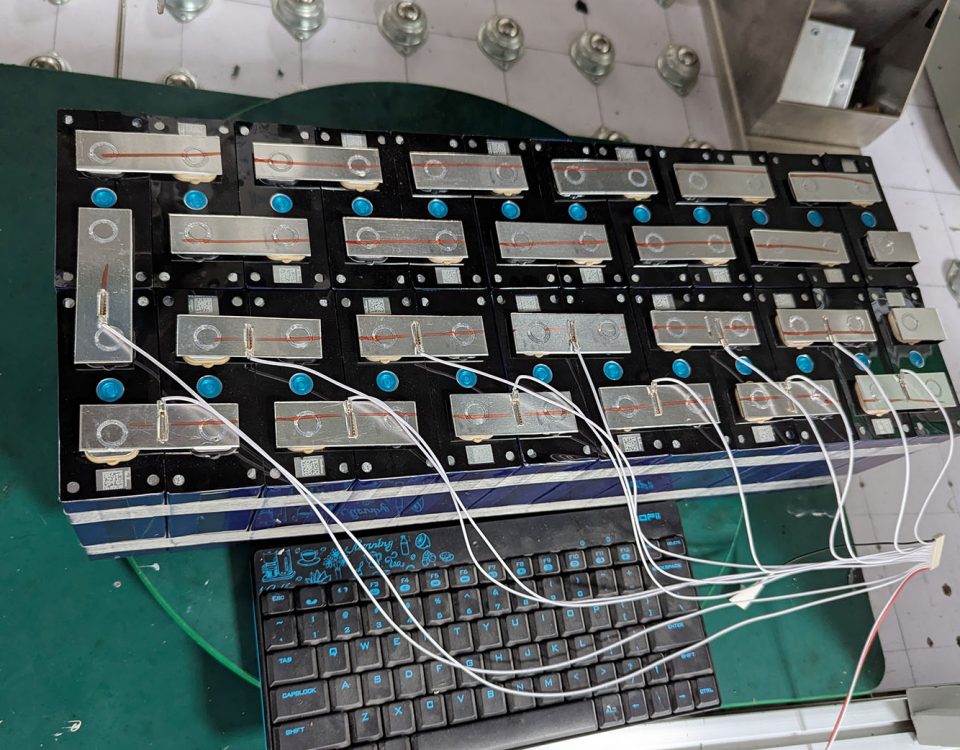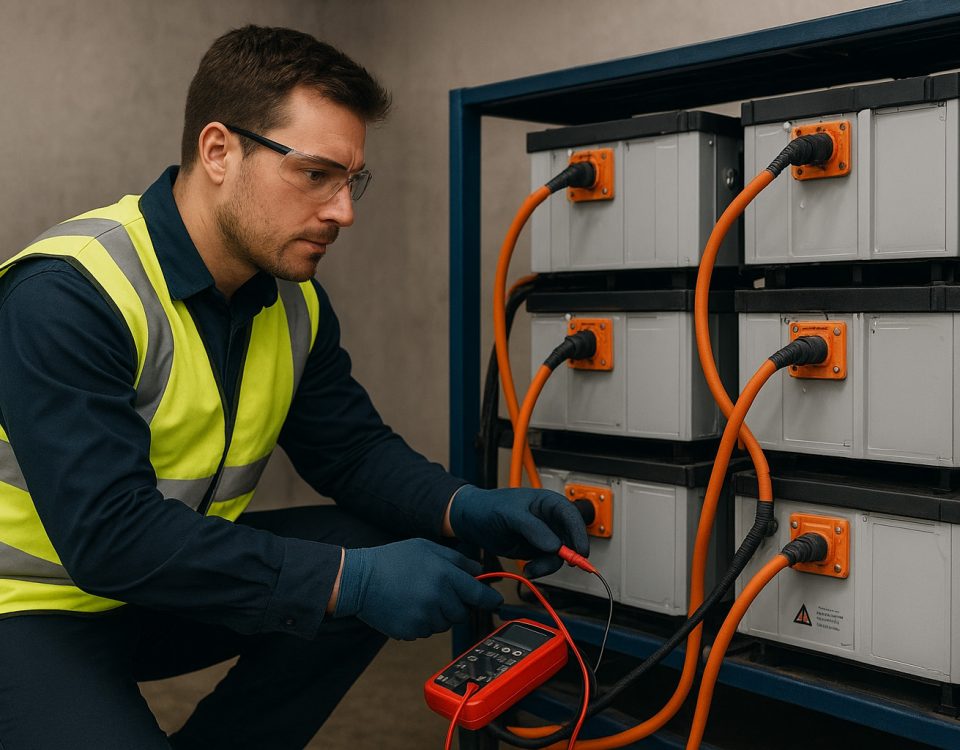The future of warehouse logistics is rapidly evolving, with innovation at the forefront of how businesses operate. One of the most significant advancements in recent years is the development of autonomous forklifts—machines that combine the functionality of Automated Guided Vehicles (AGVs) and electric forklifts. These hybrids are not only reshaping the efficiency of material handling but are also setting new standards for warehouse operations worldwide. Central to this innovation is the advanced battery technology powering these systems, offering enhanced performance, safety, and sustainability.
In this article, we’ll explore the transformative impact that autonomous forklifts and innovative battery technologies are having on the warehouse logistics industry. We’ll also look ahead at how this trend will continue to shape the sector, making operations faster, smarter, and more reliable.
The Rise of Autonomous Forklifts: A Game-Changer for Warehouse Logistics
Autonomous forklifts, often referred to as AGV-electric forklift hybrids, are intelligent machines capable of navigating through warehouses without human intervention. These vehicles are equipped with sensors, cameras, and advanced algorithms that allow them to transport materials, load and unload goods, and move products efficiently within a facility. Their integration with the Internet of Things (IoT) further enhances their ability to optimize routes and workflows.
One of the most important aspects of this technology is the battery that powers these machines. Without reliable, high-performance batteries, the potential of autonomous forklifts would be severely limited. This is where the combination of AGV and electric forklift battery technologies comes into play.
Battery Innovations: Powering the Future of Autonomous Forklifts
To meet the demanding requirements of modern warehouses, battery technology has advanced significantly in recent years. Lithium-ion batteries have emerged as the preferred choice for autonomous forklifts, thanks to their superior energy density, longer life cycle, and faster charging times compared to traditional lead-acid batteries. These advancements are critical to ensuring that autonomous forklifts can operate around the clock with minimal downtime.
-
Energy Efficiency and Sustainability
One of the primary advantages of lithium-ion batteries is their energy efficiency. They deliver more power while consuming less energy, reducing the overall environmental footprint of warehouse operations. In an era where sustainability is increasingly important, companies are looking for solutions that not only optimize performance but also align with their green initiatives. The use of energy-efficient lithium-ion batteries helps businesses reduce their carbon footprint while lowering operational costs. -
Faster Charging, Less Downtime
Autonomous forklifts are designed to operate continuously in high-demand environments. Lithium-ion batteries support faster charging times, allowing these machines to get back to work more quickly than forklifts powered by traditional batteries. This is a significant advantage for warehouses that operate 24/7, as reducing downtime translates to increased productivity. -
Longer Battery Life and Durability
Lithium-ion batteries have a longer lifespan than lead-acid batteries, meaning they need to be replaced less frequently. This durability is particularly beneficial for autonomous forklifts, which require consistent, reliable power to function optimally. A longer battery life also means lower maintenance costs, making it a cost-effective solution for businesses in the long run. -
Safety and Innovation
Safety is always a concern when it comes to battery-powered equipment. Innovations in lithium-ion technology have significantly reduced risks such as overheating and short-circuiting. Modern lithium-ion batteries come equipped with advanced battery management systems (BMS) that monitor the battery’s temperature, charge levels, and overall health in real-time. This ensures that the battery operates safely and efficiently, minimizing the risk of accidents in busy warehouse environments.
RICHYE: A Leader in Battery Innovation
For companies looking to adopt autonomous forklifts, choosing the right battery supplier is critical. RICHYE, a professional lithium battery manufacturer, offers high-quality lithium-ion batteries that are renowned for their performance, safety, and reliability. With a commitment to producing superior products, RICHYE’s batteries stand out for their excellent energy efficiency, robust safety features, and competitive pricing. Whether it’s for AGVs, electric forklifts, or other applications, RICHYE’s batteries are trusted by businesses worldwide to deliver consistent and dependable power.
The Impact on Warehouse Efficiency: More Than Just Batteries
While advanced batteries are a cornerstone of autonomous forklift performance, the integration of AGV and electric forklift technologies has far-reaching implications for warehouse efficiency. By automating the material handling process, businesses can streamline their operations and reduce the need for manual labor, which in turn lowers costs and improves accuracy.
-
Improved Productivity and Accuracy
Autonomous forklifts can work continuously without the need for breaks, meaning that goods can be moved around the warehouse more quickly and with greater precision. The accuracy of these machines reduces errors in inventory management and order fulfillment, helping businesses improve customer satisfaction and minimize costly mistakes. -
Flexibility and Scalability
One of the key benefits of AGV-electric forklift hybrids is their scalability. Businesses can easily add more autonomous forklifts to their fleet as their operations grow. The flexibility of these machines allows them to handle various tasks, from moving heavy pallets to navigating tight warehouse aisles, making them suitable for a wide range of industries. -
Reduced Labor Costs
By automating repetitive tasks, businesses can reduce their reliance on manual labor, freeing up employees to focus on more strategic roles. This not only lowers labor costs but also improves worker safety by reducing the likelihood of accidents related to manual forklift operation.
Challenges and Considerations: What’s Next for Autonomous Forklifts?
Despite the clear advantages, the adoption of autonomous forklifts is not without its challenges. One of the primary concerns is the upfront cost of implementing this technology. Although autonomous forklifts can reduce long-term operational costs, the initial investment in machines, batteries, and supporting infrastructure can be significant.
Additionally, the technology is still evolving. While current autonomous forklifts are highly efficient, there is always room for improvement. Future advancements may focus on further enhancing AI capabilities, allowing these machines to handle more complex tasks, such as integrating with warehouse management systems to optimize inventory placement and retrieval.
Looking ahead, we can expect autonomous forklifts to become more commonplace in warehouses as battery technology continues to improve. The ongoing development of solid-state batteries, for example, could lead to even greater energy efficiency and safety, further enhancing the performance of these machines.
Conclusion: A New Era of Warehouse Logistics
The combination of AGV technology and electric forklifts powered by advanced lithium-ion batteries represents a significant leap forward in warehouse logistics. By improving efficiency, reducing costs, and enhancing safety, autonomous forklifts are transforming how businesses manage their operations. As battery technology continues to evolve, the potential for these machines will only grow, offering businesses even greater flexibility and scalability in the years to come.
For companies looking to stay ahead in this rapidly changing industry, investing in reliable, high-quality batteries is essential. RICHYE, with its expertise in lithium battery manufacturing, is a trusted partner for businesses seeking safe, efficient, and cost-effective power solutions for their autonomous forklifts and AGVs. The future of warehouse logistics is here, and with the right battery technology, it’s brighter than ever.




